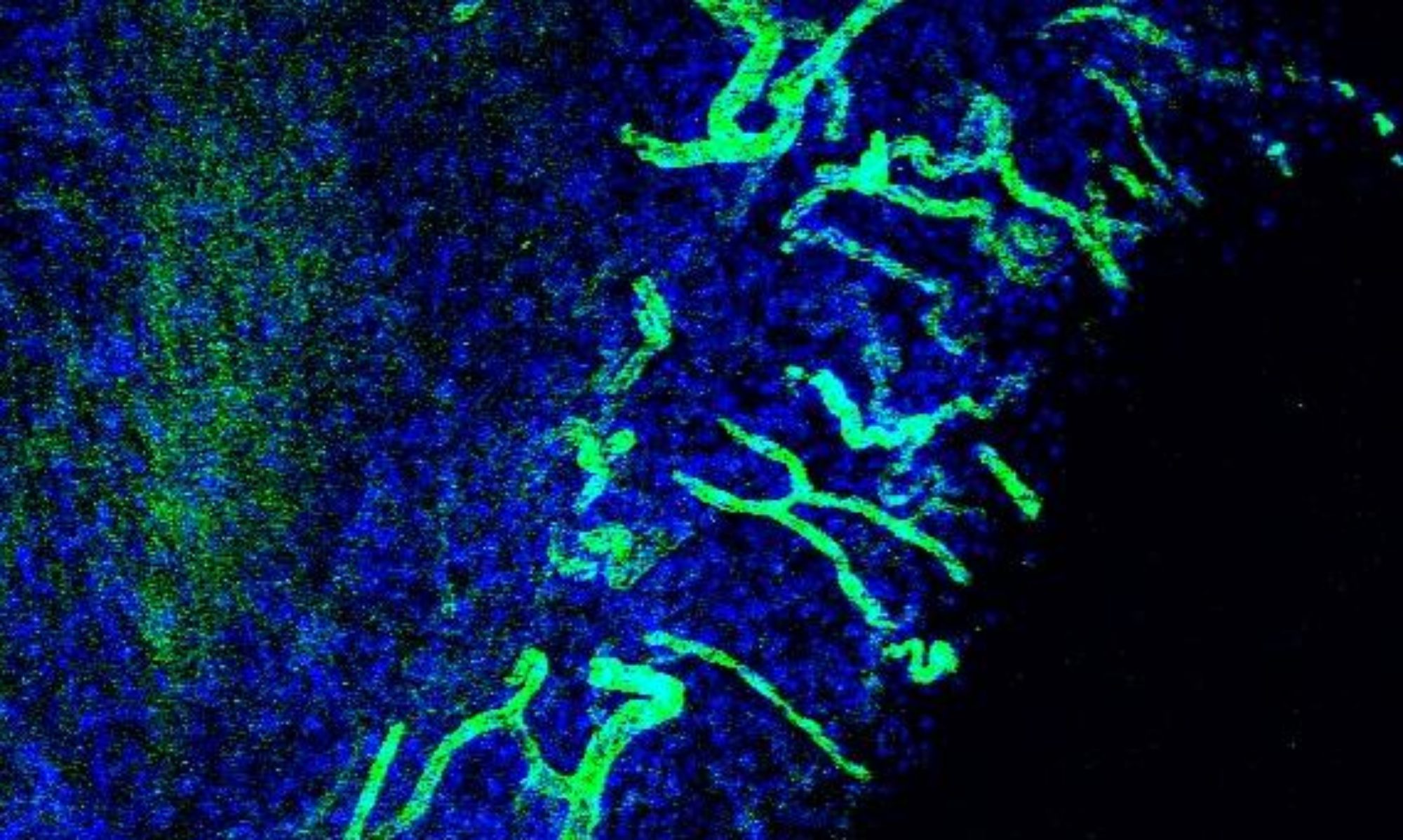Research
Agent-Based Modeling
Our lab has been developing breast cancer progression models that would characterize the progression from a primary tumor all the way through to metastasis and treatment. Agent-based models of breast tumor growth have been combined with models of angiogenesis (recruitment of vasculature) and the host stroma. These models are used to study the complex process of breast cancer growth, vasculature recruitment, invasion and metastasis. These models can then be used to computationally treat the tumor at different stages of cancer growth. The tumor vasculature is modeled as the source for stromal cell recruitment and drugs. Cancer cells receive different amounts of drug based on distance from the vessel, drug uptake, and degradation. Combination therapies, such as anti-angiogenic and chemotherapy, can then be tested for efficacy in tumor regression. Ultimately, the goal of the lab is to use our models to predict targeted therapies for patient treatment.
Image Processing
Our lab has been developing image-processing tools to analyze the morphology of skin lesions, breast cancer and vasculature in vivo. A three-phase automatic segmentation algorithm was developed to identify the border of dermoscopy images of skin lesions. This segmentation method could then be used to classify whether the lesion was benign, melanocytic, or non-melanocytic. Automatic alignment algorithms, automatic segmentation algorithms, and reconstruction algorithms have been developed to study the 3D morphology of DCIS (ductal carcinoma in situ). Similar methodologies are applied to create 3D reconstructions of vasculature in disease and non disease conditions. Image processing tools such as the ones we have developed here have wide applications in medicine, and can also be used for facial recognition, for tracking motion, and for computer graphics in film and video games.
Code from publications
Investigating Two Modes of Cancer Associated Antigen Heterogeneity in an Agent-Based Model of Chimeric Antigen Receptor T-Cell Therapy
Tina Giorgadze, Henning Fischel, Ansel Tessier, and Kerri-Ann Norton
Submitted
